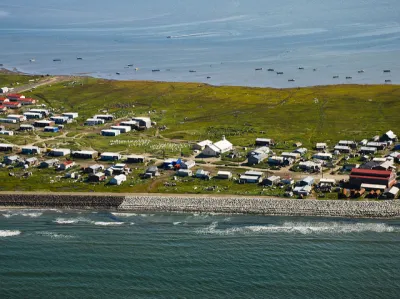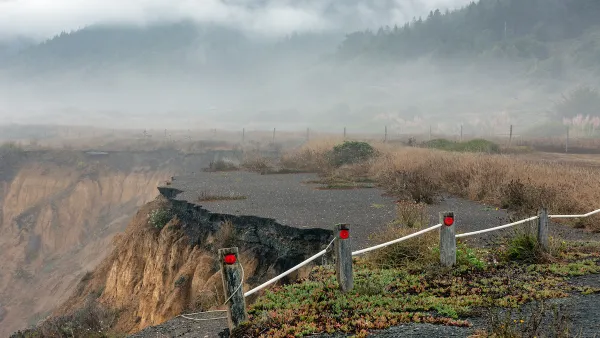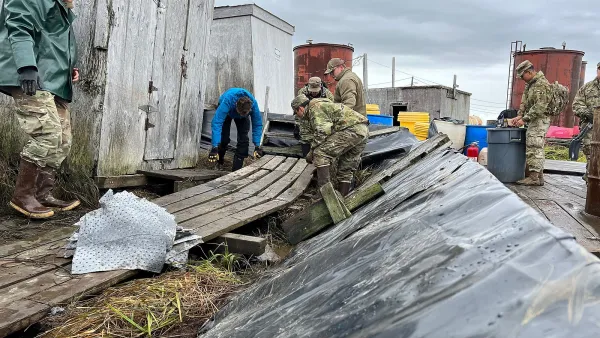From Alaska to Washington, climate change is real, and it’s here now, for indigenous tribes.

A feature article by Luna Reyna, published by Crosscut, takes a deep dive into the grave threats facing indigenous tribes in the Pacific Northwest—from Alaska to Washington—as a result of climate change and other environmental degradation.
Included in the feature-length story, Reyna shares news of a new documentary that spotlights the Yup’ik people of Alaska as they relocate due to rising seas.
On Earth Day, the documentary film Newtok, premiered to the public, raising awareness about potential climate refugees, the Yup’ik people of an Alaskan village called Newtok.
The Yup’ik are far from alone in being forced to relocate and facing an increasing number of environmental risks as a result of the planet's shifting climate.
Crosscut’s 2019 documentary, The Rising, spotlighted Quinault leaders’ efforts to relocate the villages of Taholah and Queets from their homelands, where over a thousand people face increased tsunami risk as the sea rises inch by inch, year by year.
Other tribes are facing other threats from climate change and other environmental impacts of society, like wildfires, melting permafrost, and declining salmon stock. As documented in the article, these indigenous people have been living in balance with their environment for time immemorial, and share none of the blame for their plight.
Meanwhile the country and the world have been slow to react, despite what the the United Nation’s International Panel on Climate Change (IPCC) describes as an incredibly short timeframe remaining for effective climate action. The federal Infrastructure Investment and Jobs Act (IIJA), approved in November 2021, allotted $46 million in funding for tribal communities to address the impacts of climate change as part of $466 million for the Bureau of Indian Affairs. That number is paltry compared to the total $500 billion in new spending enacted by the IIJA, or the tremendous need to eliminate the carbon emissions necessary to stave off the catastrophic effects of climate change.
FULL STORY: From WA to Alaska, coastal tribes face displacement with insufficient financial help

Analysis: Cybertruck Fatality Rate Far Exceeds That of Ford Pinto
The Tesla Cybertruck was recalled seven times last year.

National Parks Layoffs Will Cause Communities to Lose Billions
Thousands of essential park workers were laid off this week, just before the busy spring break season.

Retro-silient?: America’s First “Eco-burb,” The Woodlands Turns 50
A master-planned community north of Houston offers lessons on green infrastructure and resilient design, but falls short of its founder’s lofty affordability and walkability goals.

Test News Post 1
This is a summary

Analysis: Cybertruck Fatality Rate Far Exceeds That of Ford Pinto
The Tesla Cybertruck was recalled seven times last year.

Test News Headline 46
Test for the image on the front page.
Urban Design for Planners 1: Software Tools
This six-course series explores essential urban design concepts using open source software and equips planners with the tools they need to participate fully in the urban design process.
Planning for Universal Design
Learn the tools for implementing Universal Design in planning regulations.
EMC Planning Group, Inc.
Planetizen
Planetizen
Mpact (formerly Rail~Volution)
Great Falls Development Authority, Inc.
HUDs Office of Policy Development and Research
NYU Wagner Graduate School of Public Service




























